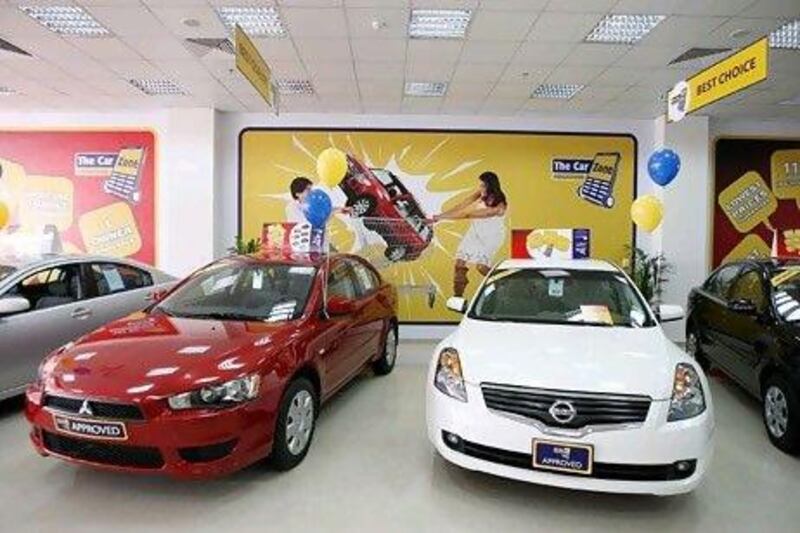Drivers are calling for an overhaul of how insurers value a car following a major crash.
Lindsay Johnston, a Dubai resident, was left with a nearly worthless car this month after another driver swerved into her vehicle following a burst tyre.
Having bought the car, a Nissan Qashqai, nearly three years ago for Dh84,000 (US$22,868), Ms Johnston will now walk away with just Dh22,000 after she pays back her bank loan and the insurance company applies its method of assessing the car's value.
"Everyone says buy a car because you will have something to show for it, but I don't think I have," said Ms Johnston. "I have to start back at the beginning."
Many insurance companies across the country currently value cars based on a standard annual depreciation charge of 20 per cent.
But Bill Carter, a valuations analyst at Autodata Middle East, a car research and information company, said such a method of valuation should be scrapped. "You cannot have constant depreciation in a real life market," he said.
"There are certain factors that affect the way vehicles depreciate," he added. "The methods [insurance companies] are using do not work."
In other parts of the world, insurance companies use the latest market data on the prices of used cars to determine payout levels.
Currently, Ms Johnston can find a Qashqai model with a similar mileage to her old car and of the same year on a website in Dubai for about Dh63,000. Autodata also estimates the price at about Dh60,000.
Yet, Ms Johnston took out a Dh97,000 loan for her car originally, and is now being offered just Dh45,900 by her insurance company. Mr Carter said there were four key factors that affected the price of a used car in the market: demand, supply, the life cycle of the model and the time of the year it was bought. If the demand was high, or the supply low, the car would depreciate at a much slower level then 20 per cent, he said.
In addition, if the life cycle of a car was short, and new models came out frequently, the depreciation would be greater.
In the UAE, there were also peak buying times, such as Ramadan and Eid, as well as the start of the school holidays, when expatriates tended to move to the country. Such peaks could also affect the value of a car.
Last year, a used Toyota Prado was worth more in December than a month later because of a supply shortage following the earthquake and tsunami in Japan, Mr Carter said.
"Insurers are starting to realise that there's a huge problem," he added. "Using market data, they can base their premium on a true value and negate the risk of over insuring."
twitter: Follow and share our breaking business news. Follow us
iPad users can follow our twitterfeed via Flipboard - just search for Ind_Insights on the app.





